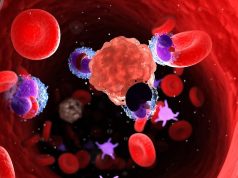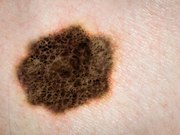2003 to 2014 Saw Drop in Urinary Arsenic in Public Water Users
Reduction occurred after implementation of EPA's maximum contaminant level for arsenic
Design Thinking Enables Med Students to Solve Challenges
Partnership with design students focuses on innovative solutions to health system issues
Cryotherapy May Prevent Chemo-Induced Neuropathy
Breast cancer patients on paclitaxel had lower incidence of peripheral neuropathy with cryotherapy
Melanoma Staging Undergoes Evidence-Based Revision
Key changes include new N category descriptors, more stage III subgroups, new M1D designation
In Norway, Risk of SCC After Organ Transplant Has Fallen
Standardized incidence ratio peaked in patients who underwent transplantation in 1983-1987 period
Oncogenic Oral HPV DNA Detected in 3.5 Percent of Adults
Prevalence of oncogenic oral HPV higher in men, rises with number of lifetime oral sexual partners
For Hepatitis B Patients, Aspirin Tied to Lower Risk of HCC
5 years of aspirin therapy linked to significantly lower incidence of hepatocellular carcinoma
Clinician Job Satisfaction Linked to Improved Burnout Scores
Reduced intention to leave practice for clinicians who report increased job satisfaction during follow-up
Gene Tx Approved for Certain Types of B-Cell Lymphoma
First such treatment for certain types of non-Hodgkin lymphoma
Key Stakeholders Discuss How to Make EHRs More Usable
Stakeholders, physicians discuss EHR usability and optimization, rules for releasing test results



















